 Hydraulic Parts Source is among the newest businesses in the select circle of MDNA Premier Vendors, with an experienced executive team that is becoming well-known in the used machinery business. Andrew Pringle is Director of Business Development and Surplus for Hydraulic Parts Source, which is headquartered in Harrison Township, Mich., in north suburban Detroit. He’s relatively new to Hydraulic Parts Source but is a veteran of the surplus machinery trade and sees great potential benefit for both his new employer and the MDNA member businesses the company will serve as a Premier Vendor. “It’s not just that we can help you with your hydraulic components,” he explains of the connection with MDNA members. “We can acquire good surplus stock from anyone who wants to pass it along. We can do repairs. We do drop shipments to protect your customer base and not involve our organization at all. We're really willing to do whatever we need to do to facilitate and keep sales relationships together for your customer base and, obviously, to grow ours in return.” Pringle and his family reside in his hometown of Twinsburg, Ohio, several miles south of Cleveland and his previous employer, HGR Industrial Surplus. He began at HGR in sales and worked his way up through the supervisory ranks to director of sales. At Hydraulic Parts Source, he’s involved in strengthening and expanding the company’s brand as well as procurement, which takes him to customers for on-site assessments and relationship-building. HGR was one of the MDNA members that stepped up on behalf of Hydraulic Parts Source when the Michigan company applied for Premier Vendor status. The MDNA Premier Vendor networking and marketing program designed to broaden relationships between MDNA members and key industry-supporting partners. “I knew HGR was a major player with the MDNA,” Pringle recalls. “I was familiar with the organization and appreciated the benefit of getting involved with the (used machinery) community. So, basically, we found sponsors to vouch for the quality and character of our business, and one of them was HGR.” “I joined Hydraulic Parts Source in the first place because I know that (CEO) Corey Gilbert is a man of character, that the organization operates with Integrity, and that they really value customer service.”
0 Comments
 Like many other machine sales businesses, family ties and professional friendships have helped secure the foundation of Walker Machinery LTD. And there’s every reason to believe that, through the Machinery Dealers National Association (MDNA), those same factors will play an important role in the Canadian company’s future. ‘Taking part in (MDNA) events and the networking through the years has really helped us do our job better,” says Chris Walker, CEA, president of Walker Machinery. The company specializes sales of new and used metal-cutting and shaping equipment, primarily lathes, saws, drills and horizontal and vertical boring mills. Walker also offers appraisal services for used equipment and is a member of the Association of Machinery and Equipment Appraisers (AMEA). The company was founded in 1996 by Chris Walker’s father, Lee, who officially retired just last year. Vice President Ryan Walker now heads the five-person operation with his brother Chris, doing business from a facility in Milton, just 25 miles from Toronto International Airport and not far from the western shore of Lake Ontario. The company is marking its 25th year of MDNA membership in 2024, and Chris Walker says that relationship has been instrumental in making the business what it is today. Most of Walker Machinery’s customer base is in Canada, but it also does considerable business in the U.S., as well as in Eastern Europe and Taiwan. Joining he MDNA, Walker says, “defined a way for us the stretch our legs to the U.S. market,” and was the right move for the company. Membership not only provided Walker with the kind of professional credibility others value, but Walker came to rely on fellow MDNA members for advice and direction as the company grew. “It has made it easier for us to do business internationally,” he notes. Though Walker Machinery’s initial sales emphasis was on used equipment, the strong relationships that developed with new-equipment suppliers like Heidenhain and several other European-based concerns, shifted the company’s emphasis, and Walker says, “We’re now involved with more new machinery than with used.” As time has seen significant changes at Walker Machinery, one constant in their business focus will be the stability and other advantages that has come with MDNA membership. Walker doesn’t see that changing. “Frankly, as you get a little older you look for ways to make life more convenient,” he reflects. “Through the MDNA and the AMEA, we have found ways to do what we can to make our demanding jobs a little easier.”  Bob Nurko will tell you he’s among “the last of the one-man bands” on the machinery sales scene. That being the case, then he can still carry a tune. Nurko is the founder — and sole employee — of Easton Machinery, Inc., located an hour from both New York City and Philadelphia, in the rolling hills of eastern Pennsylvania. He has been part of the machinery sales business for nearly a half-century and established Easton Machinery in 1984 following a 15-year stint with Ingersoll-Rand. This May, he and his business observed 25 years of membership in the Machinery Dealers National Association (MDNA). Nurko wasted no time joining MDNA’s leadership ranks, serving as Philadelphia Chapter chair from 2005-2007. The knowledge gained and connections made have brought him satisfaction and confidence. “The MDNA has meant a lot of joint ventures and business friendships for me over the years,” he said in a recent interview. “And it provides a code of ethics for our industry that we’ve maintained. That’s what all members get as a benefit.” Easton dealt strictly in used machinery in its early days, then moved into new equipment sales in 1990, a year after being named a key distributor by Summit Machine Tools. Since, then, Easton has added nearly a dozen other new-equipment, lines. Nurko takes pride in offering his sales customers what he considers the best of both worlds — the responsiveness and attention of a small shop combined with the availability of major brands. “Having now been with MDNA for 25 years and as a past chairman of the Philadelphia Chapter, I’d like to extend heartfelt appreciation to all previous, current, and future MDNA members,” he concluded. “And I sincerely hope they all had a meaningful Memorial Day.”  Terry Yoder runs a second-generation family machinery sales business in the Heartland, and part of his mission is to prepare the third generation for success. Yoder Machinery Sales operates under 300,000 square feet from three facilities in the greater Toledo, Ohio area. The business dates to 1957, when Terry’s father, Lowell Yoder, established Yoder Machinery. It has grown to have a place today among the largest used machinery dealers in America, with more than 3,000 production items in stock. “Our typical customer is a family-owned business employing 75 or fewer people." says Terry, the company’s president, who adds, “We’re mostly manual equipment. We work with metal — no plastics. And we don’t offer much CNC.” Even when your stock-in-trade is offering “Old School" wares, you keep up with the market and prepare for tomorrow’s opportunities. Yoder is positioned to do that. Terry is the father of three and since he bought out his brother Tim’s share of the business in 2019, has had an eye toward the company’s next chapter. His son, Cody, is Yoder’s vice-president and Terry’s first cousins, Jake and Shane Yoder, have joined Cody on the sales team. They help represent a business that buys, sales, repairs, cleans, paints, rigs, and ships machinery for delivery to a mostly American customer base. Terry keeps his finger on the pulse of the used equipment business through his involvement with the Machinery Dealers National Association (MDNA), which he joined after driving a truck, working eight years in the warehouse, and serving as a bookkeeper for his father. He has been involved with the MDNA at the leadership level for more than two decades. “I hope (the company) keeps on growing and the family continues in the machinery business,” he summarizes. Listen carefully, and you can hear the smile in his voice. 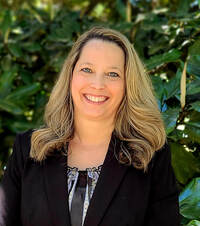 Welcome to “The Women of MDNA,” a series of posts where you’ll meet some of the remarkable women in our industry. Their contributions enhance our organizations and industries on a daily basis. That’s especially true for Doris Toronyi of Maynards Industries USA LLC. As one of the few women in the machinery and equipment appraisal business, she is always encouraging more women to join the field. How did you get involved in the industry? I was coming from an automotive manufacturing background. Back in 2009, after taking some time off to homeschool my son, I was looking for a way to get back into the workforce. A job came up at Liquid Asset Partners, which at the time did auctions and liquidations. It was part time with the opportunity to turn into something full time down the road, which worked well for me. At first I did the accounting and the payroll, but having proved myself in that department, I earned the opportunity to transition to the newly formed appraisal department, started in 2010. I instantly took to the appraisal side of the business and found that I am very good at it. I joined the Association of Machinery and Equipment Appraiser (AMEA) in April 2015 to further my knowledge in this area, and in September of that same year began volunteering for the organization. Fast forward to 2024, and I now work for Maynards Industries as a Senior Appraiser, and I love my job and the industry. How has your company benefitted from MDNA? I think that being one of the few women in the room gets attention on its own. That leads to the “where do you work and what do you do there” conversation, which in turn brings visibility to our company. Anytime I can bring up the possibility of working with another appraiser is an opportunity for both companies to win. I will also say that my social skills and ability to speak in front of others has increased dramatically since my involvement with the MDNA and AMEA. There’s just a sense of self-confidence that has grown from the camaraderie and relationships that have been built by being a part of these organizations. It’s immeasurable. How have you served with MDNA? I’ve served on the AMEA Board of Directors since 2016. MDNA is the parent of AMEA. We handle the appraisal and valuation of machinery, equipment, and other business assets. I am currently the first vice president and am on track to be the first female president of the AMEA in mid-2025. Also, at the 2023 MDNA Convention, I was presented with the Dick Goldstein award for leadership and contribution to AMEA. What is the value women bring to the industry? We can give the guys a different point of view in a topic of discussion. I think that when we talk, they listen to what we have to say (versus another male voice). Many of the men in the industry have been doing this for generations, so while we may not always be able to bring new knowledge, we can give them a different perspective. They listen and want to hear what we have to say. I also feel as if we’re able to bring people together better, that having women in a room can make it more comfortable—more of a family environment. I love to hear updates about people’s personal lives and families. I think just that alone makes the guys feel more at ease. They are willing to talk more easily and stress a little less. It’s business, but it’s also friendship. What advice would you give other women in the machinery sales business? It’s important to fit in, but it’s even more important to keep your individuality. Men (usually) work and think in a different manner than women. We have to accept that. When you do something differently, that doesn’t mean it’s wrong, it’s just different. Also, in the words of George S. Patton Jr., “Say what you mean and mean what you say.” What do you like best about the industry? I love learning new things, and the amount of information I get from other MDNA and AMEA members is incredible. There is so much I still don’t know, and they’re here to help with that. There’s always someone I can call when I have questions or if I just need to talk. It’s family and friends doing business, but it’s also being there for each other through whatever life brings us. 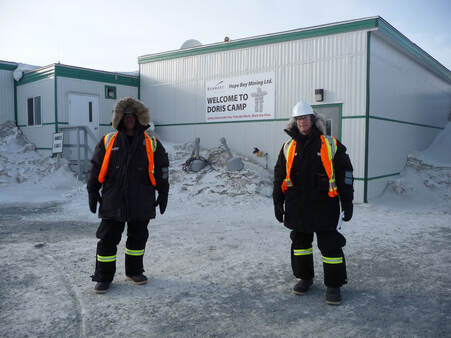 It’s no exaggeration to say Terrance Jacobs and his colleagues at TCL Asset Group Inc. will go the extra mile for their customers. In fact, that’s often an understatement. From the asset management and advisory company’s headquarters in Toronto, TCL team members fan out across North and South America to inspect, evaluate, appraise, organize, and sell a wide variety of industrial machinery and equipment. From food processing plants, cannabis and pharmaceutical facilities, to diamond and gold mines, TCL can manage it all — on and off the beaten path. Jacobs is CEO of TCL, which was founded 65 years ago by his father, Norman. In his 25 years as owner, one of the many areas of expertise where Terrance has positioned TCL as a leader in evaluation and sale of equipment at mining operations — which, by their very nature, tend to be found in remote areas. Doing business on the outskirts of civilization — in his native Canada and beyond — appeals to Jacobs’ sense of adventure and his eagerness to confront challenges. And he has assembled a group of like-minded specialists who share his passion. “There are not a lot of other people with the skill set of our team,” he declared in a recent conversation. “You have fun and enjoy yourself while you work hard. And you get to learn something new every day. The environments we work in can be harsh, but they can also be very intriguing.” Among TCL’s recent projects was the sale of all assets from a diamond mine situated in the wilds of Canada’s vast Northwest Territories. The operation was accessible in the coldest months only via ice roads laid out on frozen lakes, or by private air charter. “It was more than just mining equipment,” Jacobs said of the setting. “It was a self-contained small city unto itself, and the only things brought in during the year by air were food and spare parts to maintain site operations. People up there are very dedicated to what they do.” Over the course of two years, the TCL crew organized the site and the online auctions — which took place during the summer months — as well as subsequent delivery of mining rolling stock, process plant assets as well as infrastructure that supported the large on-site mining and support crew. Jacobs and the TCL team of experts must be ready to adapt from life below zero to the other extreme, as business opportunity dictates. “I’ve found myself in Arizona, in the middle of the summer, evaluating a solar panel farm,” he noted. TCL has conducted recent sales at remote mine operations in Chile, Puerto Rico, and northern Nevada, as well as in eastern Europe and Asia. TCL is by no means the only company of its kind doing work in exotic locales, but it has made a well-deserved name for itself. “What makes my team different is our passion of the business, the true ambition to do the best job possible, whether it’s getting the right detailed description of a machine, or helping a customer out during removal,” Jacobs noted. Finished goods will always require raw materials, so Jacobs sees no end to underground opportunities. “Just the other day I got a call about an appraisal involving rare earths,” he disclosed, referring to minerals that will be in ever-greater demand as battery technology advances. “Being both prepared and responsible for your own destiny must not be just a necessity, but a way of life.” 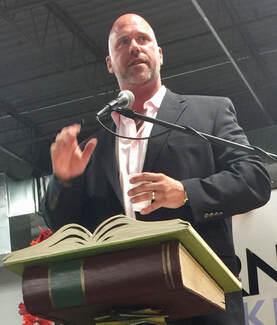 The poet Carl Sandburg memorably dubbed Chicago the “City of Big Shoulders.” Chicago has long cultivated its reputation of being a place where people tackle the big, tough jobs. So, it is no wonder Chicago boasts the largest number of member businesses of any Machinery Dealers National Association (MDNA) chapter. And Jake Josko could not be happier about that. Josko has been part of the MDNA for more than 25 years and now chairs its Chicago Chapter. He grew up in the auction business — his grandfather and father sold high-end antiques up and down the East Coast — and he started his own auction house in Connecticut fresh out of the military. Before long, Jake’s family worked its way to Chicago and put down roots there, in part, because “you’re about three hours from everywhere in the country.” Josko is the Windy City’s representative for New York-based Apex Auctions USA, which specializes in online and on-site auctions, appraisals, and liquidations of industrial equipment. He joined the MDNA leadership in the late 1990s when his late father, John, was the Chicago chapter chair. John was a strong proponent of the MDNA and the values it represents, and Jake took the cue. “I’ve felt that our gift in life, our bequest from others, is listening’’ he says. “For a long time, I listened to others refer to the benefits of joining the MDNA. Now I am a cheerleader — at chapter & board meetings, conventions, & networking with members, the message remains the same, if you actively participate you will benefit more than just monetarily.” He has plenty to do, given the chapter’s size and geographic scope. Most of its forty-six member businesses are in outlying communities. Josko’s office, for instance, is in Crystal Lake, in the city’s far northwest suburbs. “The good thing is, we’re all colleagues,” he says. “The size of the chapter allows you to leverage hundreds of industry experts’ knowledge at any given moment. And as colleagues, we help each other become more knowledgeable about the distinct types of equipment we each individually have expertise in appraising or monetizing.” Josko finds the willingness to share expertise as the most satisfying aspect of his MDNA association. “The MDNA becomes sort of your second family,” he reflects. “There are always people coming into this industry, always a lot going on, and as an association we must maintain a profound foundation of knowledge in all industrial verticals available to assist members and prospective members. We have that here in the MDNA.” Chicago Chapter meetings often attract 30 to 40 attendees, he adds, which often results in profitable conversations. “Over the years, I’ve learned that if you can help other people make money, it helps you, too,” he says. “It always comes back around.” When a blaze broke out seven winters ago in an enormous warehouse in the Midwest, it was not your standard industrial mishap. In fact, there was almost no structural damage. And nobody was aware of the fire when it was burning. It wasn’t discovered until several days had passed.
But the bizarre experience taught John Taucher some valuable lessons. Taucher owns Portage Packaging Systems, Inc., an MDNA member business that operates from four Ohio facilities — two in Hiram and two others in nearby Ravenna, all located not far from Cleveland and Akron. Batteries ignited in a truck parked inside in a 70,000-square-foot building in Ravenna, in the dead of winter with conditions so cold that the heat from the resulting flames actually dissipated before it could reach the fire alarm sensors on the 42-foot-high ceiling. But where there’s fire, there’s usually smoke — and there was plenty of that. “We turned the lights on and everything inside was very dim, because everything was covered in black soot,” Taucher recalls of the mess that greeted him when he returned from an out-of-town trip. “Trucks, loaders, machinery — everything was coated. The garage doors were damaged, but that was about it. The real work was clearing out and cleaning up.” Before long, Taucher realized that his $50,000 business interruption insurance benefit fell well short of covering the cost of moving everything into a rental warehouse. “It was a logistical nightmare,” he says. “That insurance works better in a retail setting that it did for us.” Negotiating the ins and outs of the insurance and finding temporary quarters to keep Portage’s parts and installation services to the packaging industry operating smoothly took around nine months. Taucher hired independent insurance adjustor Neil Novak, of the Alex Sill Co., in Cleveland, to represent Portage in talks with insurers, and agreements were worked out. He was so pleased with the results that he later invited Novak to address in MDNA National Convention audience on dealing with business insurance challenges. 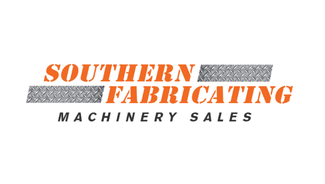 Lithia, FL – January 23rd, 2024 – Southern Fabricating Machinery Sales, Inc. (SFMS), a leading provider of fabrication, machining, EDM and manufacturing equipment, is proud to announce its 10th-anniversary milestone in 2024. Over the past decade, SFMS has established itself as an industry powerhouse, delivering cutting-edge solutions, repurposing industrial machinery, providing exceptional service, and unwavering commitment to its clients, partners & suppliers. Since its inception in 2014, SFMS has been on a remarkable journey of growth, evolution, and innovation. What began as a vision to redefine the machinery sales experience has now blossomed into a thriving enterprise known for its expertise, integrity, and customer-centric approach. A Decade of Achievements Over the past 10 years, SFMS has achieved numerous milestones, including:
A Message from Andrew Kamashian, President of SFMS "Reaching our 10-year anniversary is a momentous occasion for all of us at SFMS. We are immensely proud of the journey we've undertaken, the partnerships we've built, and the trust our clients have placed in us. This milestone is a testament to our team's dedication, our commitment to innovation in repurposed and new machinery solutions, and our unwavering focus on delivering value to our clients. As we look ahead, we are excited about the opportunities that the future holds, and we remain steadfast in our mission to provide the best value in solutions in the industry." Looking Ahead As SFMS enters its second decade, the company remains dedicated to its core values of integrity, excellence, and innovation. With a clear vision for the future, SFMS is poised for continued growth, further expansion, and a steadfast commitment to serving its clients with the highest level of professionalism and expertise. Adding to its portfolio of metal fabricating solutions in 2020 SFMS created BendmakUSA as teh leading supplier of Bendmak Machinery including Plate & Profile Bending Rolls, Plate Processing Machinery, Structural Beam Drilling Machinery and an extensive selection of Welding Machinery. Contact Information For media inquiries, please contact: Andrew Kamashian [email protected] 813-444-4555 X106 To learn more about Southern Fabricating Machinery Sales, Inc., visit www.southernfabsales.com To learn more about the BendmakUSA division visit www.bendmakusa.com We’re all familiar with how hard the members of the Machine Dealers National Association (MDNA) work. But how aware are we of how hard some of them play?
Putting in long hours at the office, on the shop floor, or on the road is necessary and expected for business success. For some people, though, it’s just the start. Away from work, they find focus, inspiration, and meaning from involvement in what most people consider “extreme” recreation — distance running, triathlon competitions, even diving and surfing. And these are not extensions of childhood pursuits. Some came to strenuous sports at relatively advanced ages. And they’ll tell you they’re now getting as much or more out of these activities as they’re putting in. Here are profiles of four MDNA members — John Butz, Nick Gibbs, Tom Lowkes, and Mike Mills — who are athletes in it for the long run, or the long bike ride, or the long swim, or… well, you get the idea. -- John Butz was a latecomer to extreme sports, but the Florida triathlete quickly made up for lost time and learned a valuable lesson in the bargain. Butz is CEO of Resell CNC, a used CNC dealer and live and online auction service with a global customer reach, located in Midland, Fla., a suburb of Orlando. As a high-schooler in Madison, Wis., he ran cross country but didn’t keep it up through college and most of his early career in the used machinery business. But an older brother who had taken up running didn’t let John forget those days on the course and badgered him to get into extreme distance sports with him. "I did a little bit here and there — 5Ks, 10Ks, a bit of exercise — then quit,” John recalls. “But it stayed on my mind. Then one day I woke up and said, ‘I want to do an Ironman’.” So he did. He rearranged his schedule to train, then ran half-triathlons in Idaho and his old hometown of Madison in preparation for the real thing: a 2.4-mile swim, followed by a 112-mile bike ride, capped by a 26.22-mile marathon run. He trained seven days a week, improved his poor swimming skills and learned to appreciate the restorative effects of ice baths. “This was in my mid- to late 40s,” he says. “And you can ‘fake’ a half-triathlon but you can’t fake a full one. It’s rough. It took a while, but I was finally ready in November, 2019.” The course was in Tempe, Ariz., just outside Phoenix. He wasn’t after a podium finish, but he’d set a combined-time goal of 15 hours — and achieved that goal with a couple of minutes to spare. It was his one and only full ironman so far, but he learned a life lesson in the preparation. “What holds us back, nine out of 10 times, is our mind, not our body,” he reflects. “Our challenges are mostly mental.” So as he honed his physical skills, the mental obstacles disappeared, and “I must say, it has been a beautiful journey.” -- If anyone seems determined to go the distance, it’s Nick Gibbs. When he goes for a weekend run, he often schedules it carefully because it can take the better part of a day — and night. Gibbs, the Director of Business Development at Gibbs Machinery Company, is an ultramarathon runner. Unlike triathlon participants, ultramarathoners don’t swim or bike as part of their pursuit. But they more than make up for it with the distance they cover on foot — 50 kilometers (just over 31 miles), minimum, and often 100 miles or more. "I might not be the fastest out there, but I can go for a long time,” Gibbs says of his running credentials. He grew up playing hockey, but turned to running during COVID and ran his first ultramarathon a few months later in Traverse City, Mich. Gibbs Machinery is located in the Detroit suburb of Warren, Mich., a couple of ultramarathons southeast of Traverse City. Over the past three years, Gibbs has run both the traditional point-to-point 100-milers as well as lap races around 20-mile courses like the one at Traverse City. Among his biggest supporters is his wife Courtney, who will no doubt one day soon be joined in the cheer block by their first child, daughter Josephine Jane. Gibbs took part in his first New York Marathon in November, enjoying the relatively short 26.2-mile experience he calls “a bucket-list thing.” He says he’s willing to consider entering what he described as “pretty gnarly” ultramarathons planned for distances of 200 and even 300 miles. “It’s a really good way to get your thoughts together,” he says, explaining how ultramarathons can translate to the business side of his life. “You Iearn to structure your time as you prepare for the races, and to problem-solve on the go if things start to go sideways out there.” -- Many dedicated runners who train all their lives and never find themselves competing in the Boston Marathon — arguably the most famous annual distance race in the world. For Tom Lowkes, though, the Patriot’s Day promenade was the first — and so far, the only — marathon he has completed. Lowkes is owner and president of Fabricating & Production Machinery, Inc., an MDNA member that is a 40-year-old, family-operated new, used and liquidation machinery business in Worcester, Mass. Boston is just 47 miles east of Worcester, and the Marathon in 2000 marked the beginning of Lowkes’s affinity for long runs that has yet to be fully explored. “I began running as an adult," says Tom, who played soccer and football in high school. Runners can enter the Boston Marathon either by virtue of their qualifying times in other marathons or by being a member of a fund-raising team. Tom took the latter route, but the six months of training needed to prepared him for the 26.3-mile course produced something unexpected. “It turned out to be a great stress-reliever,” he recalls. “I call it my decompression time. Not being the fastest runner in the world, you’re not competing with other runners. You’re competing with yourself.” In the years since his Boston debut, Tom has limited himself to half-marathon distances. But the internal competition has spurred him to take on a new challenge, and he has begun training for an ultra marathon over a 50-mile course in Vermont in September 2024. “It’s just a goal at this point,” he says. “We’ll see how the training goes. But I’ve found that I need a goal — something like this to look forward to, something difficult to achieve so I can get out the door and go after it.” Whether the door leads to a long day at the office or an extended run through the forested hills of central Massachusetts, Tom Lowkes looked within and found the everyday secret to going the distance. -- At the age most people stop taking part in extreme sports, Mike Mills decided to start. Mills, who manages MDNA-member Machinery Resources International’s office in Scottsdale, Ariz., has been in the machining business since graduating from high school, 45 years ago. Early on, his work schedule was too hectic to allow for recreational sports, but as more time became available he chose to spend it in the out-of-doors. Mills took up swimming in his after 40s, and soon was scuba diving in Hawaii and off the California coast at La Jolla, not far from his home in Cypress, a community tucked in among Los Angeles, Anaheim, and Long Beach. He took up surfing — “the most difficult thing I’ve ever attempted” — at age 50. That led him closer to the extreme edge of competition and eventually to his first Ironman Triathlon — 140.6 miles of cycling, swimming, and running — at age 60. “As you train yourself for these kind of events, you learn you can do anything you want to,” he says of the process of reaching one’s mental and physical limits. “And you learn that many of the same things are required to finish a tough race or finish a tough day in business. You find your focus, meet your deadlines, overcome your challenges.” Lately, Mills has gravitated to Spartan racing, a combination of long-distance running and obstacle course challenges that attracts participants of all ages. It has become a family activity of sorts for Mills and his three grown children, along with his brother and a niece and nephew. “They’re more fun that doing triathlons,” he declares. “I’m going to do them while I still can.” With more than three dozen triathlons under his belt, Mills says he might still be game for an ironman these days, “if a really close friend wanted to do one.” But the Spartan races or even a dash through a shorter “mud-run” course are more his speed now. “Events like these still have meaning because you’re tapping into resources that are already inside you,” he reflects. “When you find them, it’s very satisfying.” -- |
Categories |
|
Contact us: Phone:703.836.9300 | [email protected] | sitemap
Copyright MDNA-Machinery Dealers National Association. All Rights Reserved. 5568 General Washington Drive, Suite A213D, Alexandria VA 22312 |


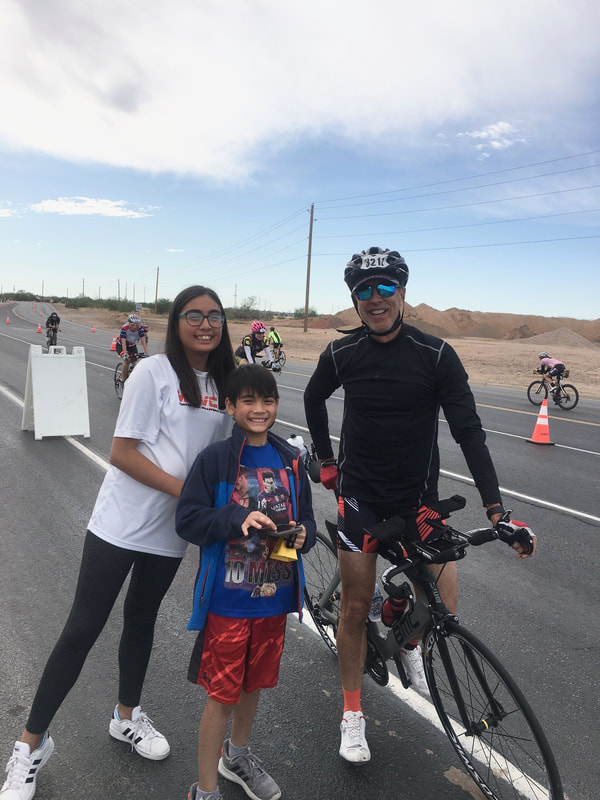


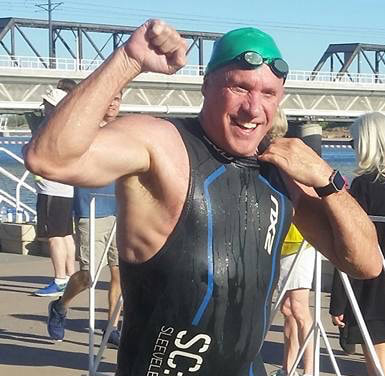
 RSS Feed
RSS Feed

